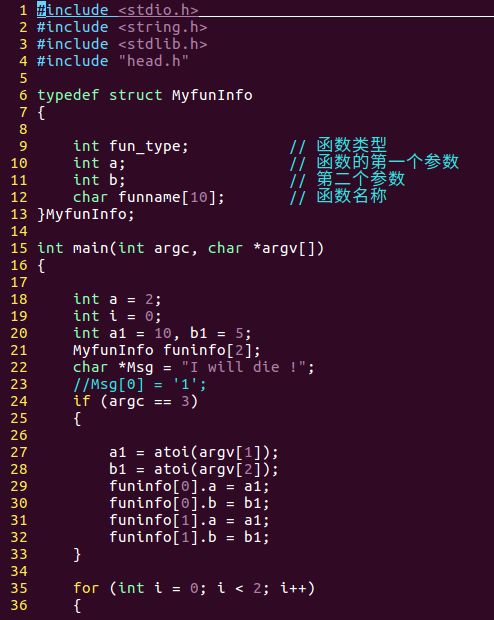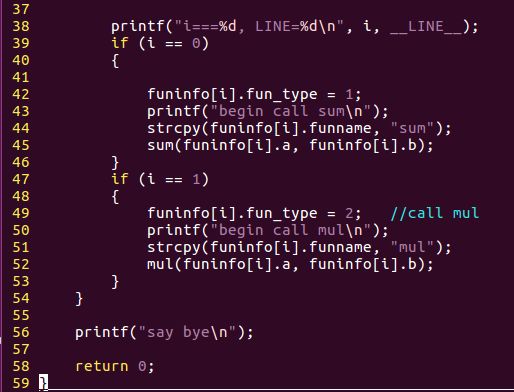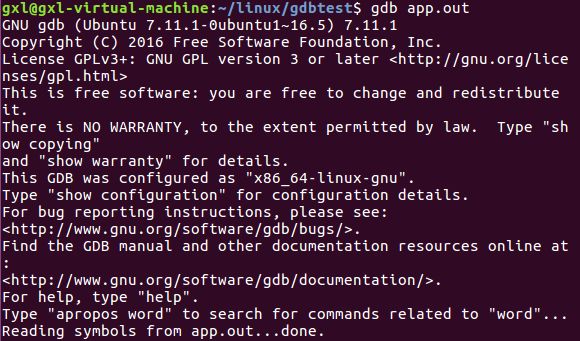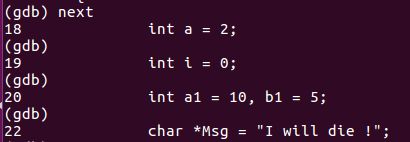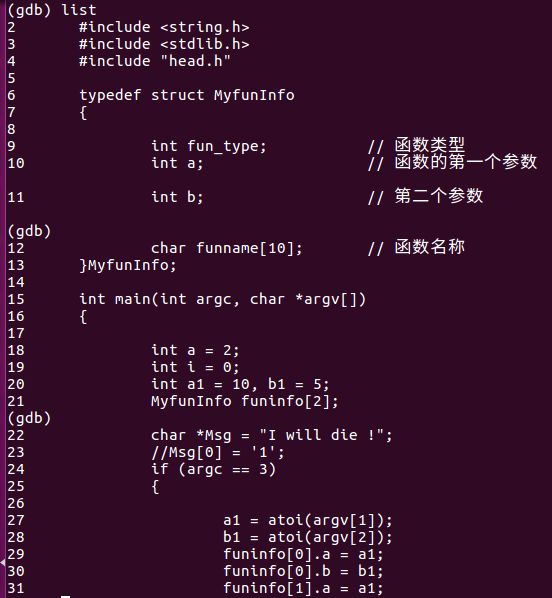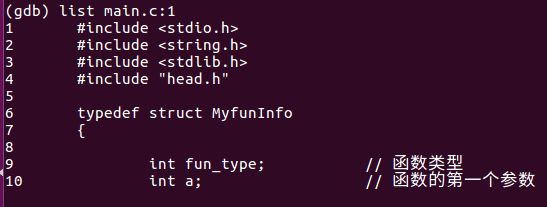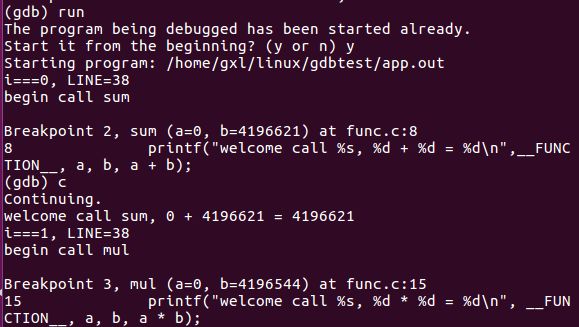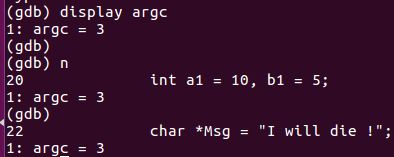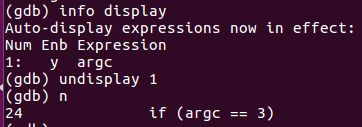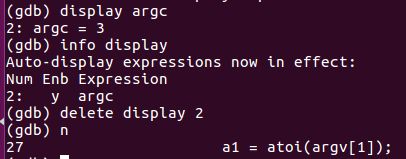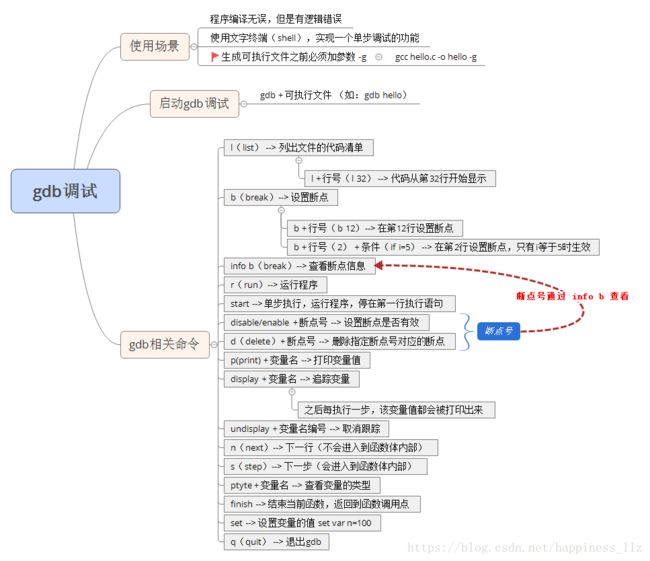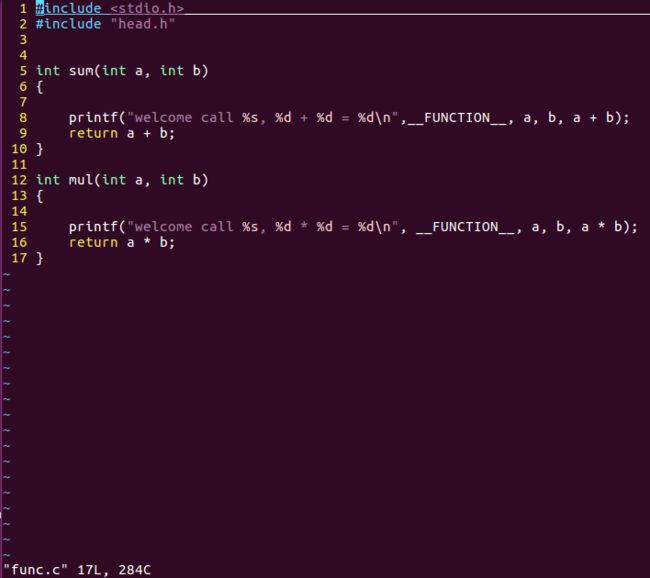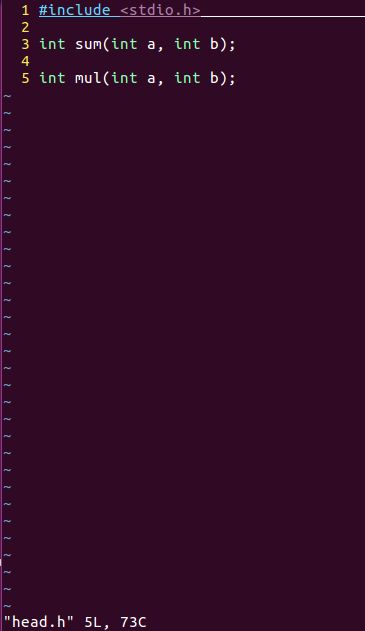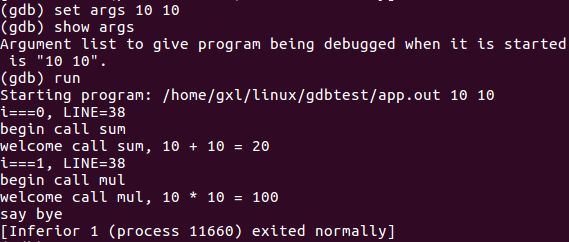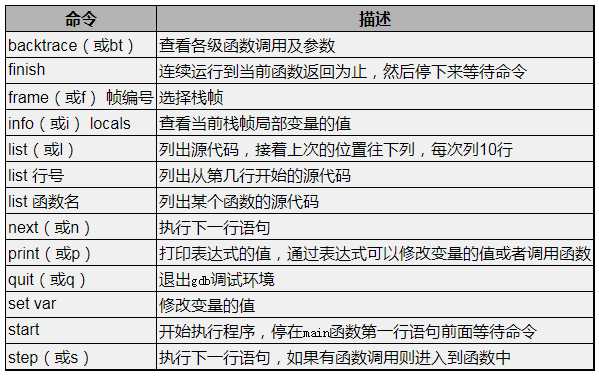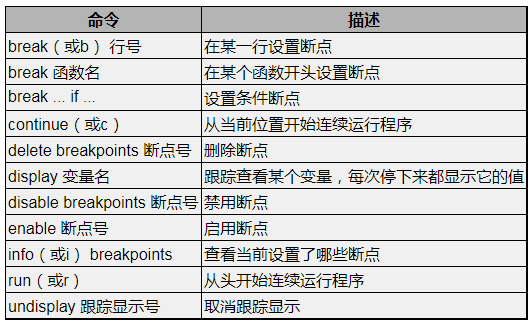- POI 的 Excel 读写操作教程
Kale又菜又爱玩
exceljava
POI的Excel读写操作教程一、POI简介ApachePOI是一款在Java开发中广受欢迎的开源库,主要用于处理各种MicrosoftOffice文件格式,Excel文件便是其中之一。凭借其功能强大的API,POI不仅支持对Excel文件的读取、写入和修改,还为Java开发者在处理Excel相关业务时提供了极大的便利。二、POI的Excel读写操作案例(一)引入依赖在Maven项目中使用POI时
- Lombok:让 Java 代码更简洁优雅的神器
Kale又菜又爱玩
java开发语言
Lombok:让Java代码更简洁优雅的神器1.Lombok简介在Java开发中,我们常常被大量重复的getter、setter、toString、equals和hashCode方法所困扰。这些样板代码(BoilerplateCode)不仅冗长,还降低了代码的可读性和维护性。Lombok作为一个轻量级Java库,能够自动生成这些方法,极大地提升了开发效率,让代码更加简洁优雅。1.1Lombok的引
- Netty入门教程
Kale又菜又爱玩
java开发语言
Netty入门教程Netty是一个高性能、低延迟的网络通信框架,广泛应用于高并发、高吞吐量的网络应用程序中。它提供了简洁易用的API,封装了底层的复杂操作,让开发者能够专注于业务逻辑。本文将从基础概念入手,逐步深入Netty的核心组件、使用方法及高级特性,帮助你在生产环境中得心应手地使用Netty。1.什么是Netty?Netty是一个异步、事件驱动的网络通信框架,极大地简化了TCP和UDP网络编
- FFplay文档解读-27-视频过滤器二
【零声教育】音视频开发进阶
音视频开发程序员编程音视频ffmpeg运维c++android
29.11boxblur将boxblur算法应用于输入视频。它接受以下参数:luma_radius,lrluma_power,lpchroma_radius,crchroma_power,cpalpha_radius,aralpha_power,ap接下来的选项的描述如下:luma_radius,lrchroma_radius,cralpha_radius,ar设置用于模糊相应输入平面的框半径的表
- 探讨消息队列系统:AWS SQS vs. Apache Kafka
fxrz12
工具awsapachekafka
在现代软件架构中,消息队列系统扮演着关键角色,帮助系统实现异步通信、负载均衡和解耦。两种广泛使用的消息队列系统是AWSSimpleQueueService(SQS)和ApacheKafka。尽管它们都提供消息传递功能,但在设计理念、功能和使用场景上存在显著差异。本文将详细探讨AWSSQS和ApacheKafka的特点,帮助你在不同场景下做出最佳选择。一、ApacheKafkaApacheKafka
- 技术干货 | i.MX 8视频开发案例全集
Tronlong创龙
工业级核心板嵌入式ARM软硬件原理图规格资料平台案例fpgaarmnxp嵌入式
前言:本文主要介绍基于NXPi.MX8MMini处理器的视频开发案例,主要包含:(1)基于GStreamer的USB摄像头视频采集、软件解码、边缘检测、显示案例。(2)基于GStreamer的网络摄像头视频采集、H.264解码、显示案例。(3)基于GigE工业相机的图像采集、显示、保存案例。(4)基于MIPICameraOV4689摄像头演示Linux子系统V4L2的使用案例。(5)H.265视频
- 解析JSON的这 6 种方案(带示例)
浪九天
企业级开发效率提升javaspringspringbootspringcloud
目录1.使用Gson详细解释运用场景代码示例2.使用Jackson详细解释运用场景代码示例3.使用JSON.simple详细解释运用场景代码示例4.使用org.json详细解释运用场景代码示例5.使用FastJSON详细解释运用场景代码示例6.使用Moshi详细解释运用场景代码示例在Java中,有多种方案可以用于解析JSON数据,以下为你详细介绍6种常见的方案:1.使用Gson详细解释Gson是G
- Digicert SSL 证书
https
Digicert作为世界最早的证书品牌,是全球领先的数字安全解决方案提供商,Digicert在SSL证书领域具有显著的市场份额和影响力。DigicertSSL证书以其高度的安全性和可靠性赢得了全球用户的信赖。众多金融机构、政府机构、电子商务网站等关键领域都选择了DigicertSSL证书来保护其网络通信安全。一、基本功能加密通信:通过使用公钥加密技术,确保用户与网站之间的数据传输是安全的。身份验证
- centos7使用yum网络安装
CentOS7Yum网络安装完全指南核心原理分析Yum(YellowdogUpdater,Modified)作为RPM系统的智能化软件包管理工具,通过以下机制实现自动化安装:依赖解析:自动识别软件包的前置依赖关系仓库同步:连接配置的软件仓库(repo)获取元数据事务处理:采用原子化操作保证安装/更新的完整性️全流程安装步骤详解步骤1:连接CentOS7服务器sshusername@server-i
- 详解工单系统WGCAT - 如何设置主题背景色
运维服务器linux程序员
工单系统WGCAT在v1.2.2版本开始支持设置主题背景色如果你在使用老版本,只需要升级到v1.2.2版本就可以使用此功能了登录后,在右上角点击,如下图
- Git前言(版本控制)
Starbright.
Gitgit
1.Git目前世界上最先进的分布式版本控制系统。git官网:https://git-scm.com/2.版本控制2.1什么是版本控制版本控制(Revisioncontrol)是一种在开发的过程中用于管理我们对文件、目录或工程等内容修改历史,方便查看更改历史记录备份以便恢复以前的版本的软件工程技术。实现跨区域多人协同开发追踪和记载一个或者多个文件的历史记录组织和保护你的源代码和文档统计工作量并行开发
- YashanDB瀛楃闆嗛厤缃�
鏁版嵁搴�
鏈枃鍐呭鏉ヨ嚜YashanDB瀹樼綉锛屽師鏂囧唴瀹硅瑙�https://doc.yashandb.com/yashandb/23.3/zh/%E6%95%B0%E6%8D%AE%...YashanDB鏈嶅姟绔拰瀹㈡埛绔敮鎸丟BK銆乁TF8銆丟B18030銆丄SCII鍜孖SO88591瀛楃闆嗭紝骞舵敮鎸佹牴鎹満鏅渶瑕侀厤缃暟鎹簱瀛楃闆嗐��#鑳屾櫙淇℃伅榛樿瀹夎涓嬶紝Yas
- Linux目录删除指南:彻底解决“Is a directory”错误
linux运维服务器
在Linux系统中遇到cannotremove'xxx':Isadirectory错误时,说明你正在尝试删除目录但未正确使用参数。以下是详细解决方案:1.基础命令修正删除空目录rmdir目录名#仅删除空目录删除非空目录rm-r目录名#递归删除(确认目录内容可删)rm-rf目录名#强制递归删除(慎用!)2.权限问题处理查看目录权限ls-ld目录名#输出示例:drwxr-xr-x2useruser40
- IP,MAC与ARP
憨堡包^—^
tcp/ipmacos网络协议
一、IPIP(InternetProtocol)地址是互联网协议地址的简称,它是分配给每个连接到互联网的设备的唯一标识符,用于在网络中定位和识别设备。IP地址分为两种主要类型:1.IPv4(InternetProtocolversion4)格式:由4组0到255之间的数字组成,用点号分隔,例如192.168.1.1。范围:IPv4地址总量约为42亿个,但由于互联网设备的快速增长,IPv4地址已经接
- 利用Java爬虫获取衣联网商品详情:实战指南
Jason-河山
java爬虫开发语言
在电商领域,获取商品详情是数据分析和市场研究的重要环节。衣联网作为知名的电商平台,提供了丰富的服装商品资源。本文将详细介绍如何利用Java编写爬虫程序,通过商品ID获取衣联网商品详情。一、准备工作(一)环境搭建Java安装:确保已安装Java开发环境,推荐使用JDK11或更高版本。开发工具配置:使用IntelliJIDEA或Eclipse等Java开发工具,创建一个新的Maven项目。依赖库添加:
- Linux管理磁盘分区
IT小馋猫
linux运维服务器
一、规划磁盘中的分区在磁盘设备中创建、删除、更改分区fdisk/列出磁盘分区信息进入分区管理界面命令/fdisk-lfdisk/dev/sdb命令/列出磁盘分区情况创建分区命令/pn命令/删除分区更改分区类型命令/dt命令/保存分区操作不保存退出命令/wqFdisk命令的参数:m:查看各种操作指令的帮助信息p:列出硬盘中的分区情况n:创建分区-t:变更分区的类型d:删除分区w:保存并退出q:不保存
- 目标检测
煤烦恼
目标检测人工智能大数据pytorch
1.概念:目标检测是识别图片中物体并确定其位置的多任务技术,面临目标种类数量多、尺度不均、外部环境干扰等问题。这里的数字为置信度2.数据集:VOC数据集分4大类20小类;COCO数据集含20万图像、80个类别、超50万目标标注,平均每图7.2个目标。3.GroundTruth格式:包含类别和边界框坐标,常见的有YOLO(归一化中心点坐标和宽高)、VOC(左上角和右下角坐标)、COCO(左上角坐标和
- 从零开始构建大模型(LLM)应用
和老莫一起学AI
人工智能ai大模型语言模型llm自然语言处理学习
大模型(LLM)已经成为当前人工智能的重要部分。但是,在这个领域还没有固定的操作标准,开发者们往往没有明确的指导,需要不断尝试和摸索。在过去两年中,我帮助了许多公司利用LLM来开发了很多创新的应用产品。基于这些经验,我形成了一套实用的方法,并准备在这篇文章中与大家分享。这套方法将提供一些步骤,帮助需要的小伙伴在LLM应用开发的复杂环境中找到方向。从最初的构思到PoC、评估再到产品化,了解如何将创意
- Yarn:包管理优化与工作空间的最佳实践
在现代前端开发中,包管理工具是不可或缺的工具之一。Yarn作为一个快速、可靠且安全的包管理工具,相对于npm,提供了一些独特的功能和优化,尤其是在工作空间管理和性能优化方面尤为突出。本文将深入探讨Yarn的专业使用,包括其工作空间的强大功能、性能优化技术以及在大型项目中的最佳实践。Yarn简介Yarn是由Facebook开发的一个JavaScript包管理工具,它旨在解决npm的一些关键问题,如安
- ToughRADIUS 快速安装指南 - 搭建开源用户认证
运维
ToughRADIUS快速安装指南ToughRADIUS是一种健壮、高性能、易于扩展的开源RADIUS服务器。本指南将引导您快速地在您的系统上安装和配置ToughRADIUS服务。当前版本是基于Go语言开发的。开源项目地址:https://github.com/talkincode/toughradius官方文档:https://www.toughradius.net/docs/documents
- ELK Stack 安装教程 - 构建日志存储告警系统
运维
介绍“ELK”是三个开源项目的首字母缩写,这三个项目分别是:Elasticsearch、Logstash和Kibana。Elasticsearch是一个搜索和分析引擎。Logstash是服务器端数据处理管道,能够同时从多个来源采集数据,转换数据,然后将数据发送到诸如Elasticsearch等“存储库”中。Kibana则可以让用户在Elasticsearch中使用图形和图表对数据进行可视化。目前最
- 盲签名算法的原理与C语言实现
c密码学信息安全加密解密
0x01概述盲签名(BlindSignature)是由Chaum,David提出的一种数字签名方式,其中消息的内容在签名之前对签名者是不可见的(盲化)。经过盲签名得到的签名值可以使用原始的非盲消息使用常规数字签名验证的方式进行公开验证。盲签名可以有效的保护隐私,其中签名者和消息作者不同,在电子投票系统和数字现金系统中会被使用。盲签名常常被类比成下面的场景:Alice想让Bob在自己的文件上签名,但
- 智能卡AID列表
安全
目前可以收集到的,相对比较新的AID列表,连CCC的数字钥匙/FIDOU2F的AID都有了。[{"AID":"315041592E5359532E4444463031","Vendor":"EMV","Country":"UnitedStates","Name":"EMVPaymentSystemEnvironment-PSE(1PAY.SYS.DDF01)","Description":"","
- 《颠覆认知,我用大模型+Redis实现SQL智能补全,开发效率暴涨500%》
煜bart
mysqlAI编程人工智能redis
一、前言:当SQL补全遇到大模型(插入传统SQL补全工具与ChatGPT对比图)你是否还在为这些场景抓狂?-凌晨3点记不清HiveQL的窗口函数语法-面对新接触的ClickHouse方言不知所措-团队新人总把STR_TO_DATE写成DATE_FORMAT传统IDE的SQL补全就像"人工智障",直到我把大模型装进Redis…##二、效果展示:智能补全的降维打击(GIF动图展示输入SELECT*FR
- 《 YOLOv5、YOLOv8、YOLO11训练的关键文件:data.yaml文件编写全解》
空云风语
人工智能YOLO机器视觉目标跟踪人工智能计算机视觉YOLO
走进YOLOv5、YOLOv8、YOLO11的data.yaml在计算机视觉领域的广袤星空中,目标检测无疑是一颗璀璨的明星,它广泛应用于自动驾驶、智能安防、工业检测、医疗影像分析等众多关键领域,发挥着不可或缺的作用。而YOLO系列算法,更是以其独特的“一次看全(YouOnlyLookOnce)”理念和卓越的性能,在目标检测领域中独树一帜,成为了众多研究者和开发者的首选工具。从最初的YOLOv1横空
- 【LLM】从零开始实现 LLaMA3
FOUR_A
LLM人工智能机器学习大模型llama算法
分词器在这里,我们不会实现一个BPE分词器(但AndrejKarpathy有一个非常简洁的实现)。BPE(BytePairEncoding,字节对编码)是一种数据压缩算法,也被用于自然语言处理中的分词方法。它通过逐步将常见的字符或子词组合成更长的词元(tokens),从而有效地表示文本中的词汇。在自然语言处理中的BPE分词器的工作原理如下:初始化:首先,将所有词汇表中的单词分解为单个字符或符号。例
- Zookeeper学习
种豆走天下
zookeeper学习分布式
Zookeeper是一个开源的分布式协调框架,它主要用于处理分布式系统中的一些常见问题,如同步、配置管理、命名服务和集群管理等。Zookeeper是由Apache提供的,并且广泛应用于各种分布式应用中,特别是在高可用、高可靠性和高性能的系统中。Zookeeper的主要功能分布式协调:Zookeeper提供了协调多个节点(服务器)间行为的机制。例如,分布式锁、选举、配置管理等。命名服务:Zookee
- 【软件测试】接口自动化测试用例通常包含哪些要素
小马哥编程
自动化测试用例
接口自动化测试用例通常包含以下要素:用例ID:唯一标识符,便于追踪和管理。用例名称:简要描述测试目的。接口信息:URL:接口地址。请求方法:如GET、POST、PUT、DELETE等。请求参数:Headers:如Content-Type、Authorization等。QueryParameters:GET请求中的查询参数。Body:POST/PUT请求的请求体,通常为JSON或XML。预期结果:状
- uniApp实战二:仿今日相机水印功能
博主逸尘
uniApp实战uni-app数码相机javascript
文章目录1.最终效果预览2.页面实现1.最终效果预览2.页面实现页面布局拍照data定义data(){return{snapSrc:"",cvHeight:"",cvWidth:"",tKey:"时间:",addKey:"地点:",};},点击事件及方法handleTakePhotoNew(){this.snapSrc=""uni.chooseImage({count:1,success:(res
- CV:图像的直方图均衡化
壹十壹
CVopencv计算机视觉人工智能
均衡化在图像处理中通常指的是直方图均衡化(HistogramEqualization),其主要目的是改善图像的对比度,使图像细节更加明显。以下是对直方图均衡化的详细说明:直方图均衡化原理直方图图像的直方图表示各灰度级在图像中出现的频率。对于对比度较低的图像,直方图可能集中在灰度范围的某一小区间。均衡化目标直方图均衡化通过将原图的灰度分布重新映射,使得输出图像的直方图尽量均匀分布在整个灰度范围内。这
- scala的option和some
矮蛋蛋
编程scala
原文地址:
http://blog.sina.com.cn/s/blog_68af3f090100qkt8.html
对于学习 Scala 的 Java™ 开发人员来说,对象是一个比较自然、简单的入口点。在 本系列 前几期文章中,我介绍了 Scala 中一些面向对象的编程方法,这些方法实际上与 Java 编程的区别不是很大。我还向您展示了 Scala 如何重新应用传统的面向对象概念,找到其缺点
- NullPointerException
Cb123456
androidBaseAdapter
java.lang.NullPointerException: Attempt to invoke virtual method 'int android.view.View.getImportantForAccessibility()' on a null object reference
出现以上异常.然后就在baidu上
- PHP使用文件和目录
天子之骄
php文件和目录读取和写入php验证文件php锁定文件
PHP使用文件和目录
1.使用include()包含文件
(1):使用include()从一个被包含文档返回一个值
(2):在控制结构中使用include()
include_once()函数需要一个包含文件的路径,此外,第一次调用它的情况和include()一样,如果在脚本执行中再次对同一个文件调用,那么这个文件不会再次包含。
在php.ini文件中设置
- SQL SELECT DISTINCT 语句
何必如此
sql
SELECT DISTINCT 语句用于返回唯一不同的值。
SQL SELECT DISTINCT 语句
在表中,一个列可能会包含多个重复值,有时您也许希望仅仅列出不同(distinct)的值。
DISTINCT 关键词用于返回唯一不同的值。
SQL SELECT DISTINCT 语法
SELECT DISTINCT column_name,column_name
F
- java冒泡排序
3213213333332132
java冒泡排序
package com.algorithm;
/**
* @Description 冒泡
* @author FuJianyong
* 2015-1-22上午09:58:39
*/
public class MaoPao {
public static void main(String[] args) {
int[] mao = {17,50,26,18,9,10
- struts2.18 +json,struts2-json-plugin-2.1.8.1.jar配置及问题!
7454103
DAOspringAjaxjsonqq
struts2.18 出来有段时间了! (貌似是 稳定版)
闲时研究下下! 貌似 sruts2 搭配 json 做 ajax 很吃香!
实践了下下! 不当之处请绕过! 呵呵
网上一大堆 struts2+json 不过大多的json 插件 都是 jsonplugin.34.jar
strut
- struts2 数据标签说明
darkranger
jspbeanstrutsservletScheme
数据标签主要用于提供各种数据访问相关的功能,包括显示一个Action里的属性,以及生成国际化输出等功能
数据标签主要包括:
action :该标签用于在JSP页面中直接调用一个Action,通过指定executeResult参数,还可将该Action的处理结果包含到本页面来。
bean :该标签用于创建一个javabean实例。如果指定了id属性,则可以将创建的javabean实例放入Sta
- 链表.简单的链表节点构建
aijuans
编程技巧
/*编程环境WIN-TC*/ #include "stdio.h" #include "conio.h"
#define NODE(name, key_word, help) \ Node name[1]={{NULL, NULL, NULL, key_word, help}}
typedef struct node { &nbs
- tomcat下jndi的三种配置方式
avords
tomcat
jndi(Java Naming and Directory Interface,Java命名和目录接口)是一组在Java应用中访问命名和目录服务的API。命名服务将名称和对象联系起来,使得我们可以用名称
访问对象。目录服务是一种命名服务,在这种服务里,对象不但有名称,还有属性。
tomcat配置
- 关于敏捷的一些想法
houxinyou
敏捷
从网上看到这样一句话:“敏捷开发的最重要目标就是:满足用户多变的需求,说白了就是最大程度的让客户满意。”
感觉表达的不太清楚。
感觉容易被人误解的地方主要在“用户多变的需求”上。
第一种多变,实际上就是没有从根本上了解了用户的需求。用户的需求实际是稳定的,只是比较多,也比较混乱,用户一般只能了解自己的那一小部分,所以没有用户能清楚的表达出整体需求。而由于各种条件的,用户表达自己那一部分时也有
- 富养还是穷养,决定孩子的一生
bijian1013
教育人生
是什么决定孩子未来物质能否丰盛?为什么说寒门很难出贵子,三代才能出贵族?真的是父母必须有钱,才能大概率保证孩子未来富有吗?-----作者:@李雪爱与自由
事实并非由物质决定,而是由心灵决定。一朋友富有而且修养气质很好,兄弟姐妹也都如此。她的童年时代,物质上大家都很贫乏,但妈妈总是保持生活中的美感,时不时给孩子们带回一些美好小玩意,从来不对孩子传递生活艰辛、金钱来之不易、要懂得珍惜
- oracle 日期时间格式转化
征客丶
oracle
oracle 系统时间有 SYSDATE 与 SYSTIMESTAMP;
SYSDATE:不支持毫秒,取的是系统时间;
SYSTIMESTAMP:支持毫秒,日期,时间是给时区转换的,秒和毫秒是取的系统的。
日期转字符窜:
一、不取毫秒:
TO_CHAR(SYSDATE, 'YYYY-MM-DD HH24:MI:SS')
简要说明,
YYYY 年
MM 月
- 【Scala六】分析Spark源代码总结的Scala语法四
bit1129
scala
1. apply语法
FileShuffleBlockManager中定义的类ShuffleFileGroup,定义:
private class ShuffleFileGroup(val shuffleId: Int, val fileId: Int, val files: Array[File]) {
...
def apply(bucketId
- Erlang中有意思的bug
bookjovi
erlang
代码中常有一些很搞笑的bug,如下面的一行代码被调用两次(Erlang beam)
commit f667e4a47b07b07ed035073b94d699ff5fe0ba9b
Author: Jovi Zhang <
[email protected]>
Date: Fri Dec 2 16:19:22 2011 +0100
erts:
- 移位打印10进制数转16进制-2008-08-18
ljy325
java基础
/**
* Description 移位打印10进制的16进制形式
* Creation Date 15-08-2008 9:00
* @author 卢俊宇
* @version 1.0
*
*/
public class PrintHex {
// 备选字符
static final char di
- 读《研磨设计模式》-代码笔记-组合模式
bylijinnan
java设计模式
声明: 本文只为方便我个人查阅和理解,详细的分析以及源代码请移步 原作者的博客http://chjavach.iteye.com/
import java.util.ArrayList;
import java.util.List;
abstract class Component {
public abstract void printStruct(Str
- 利用cmd命令将.class文件打包成jar
chenyu19891124
cmdjar
cmd命令打jar是如下实现:
在运行里输入cmd,利用cmd命令进入到本地的工作盘符。(如我的是D盘下的文件有此路径 D:\workspace\prpall\WEB-INF\classes)
现在是想把D:\workspace\prpall\WEB-INF\classes路径下所有的文件打包成prpall.jar。然后继续如下操作:
cd D: 回车
cd workspace/prpal
- [原创]JWFD v0.96 工作流系统二次开发包 for Eclipse 简要说明
comsci
eclipse设计模式算法工作swing
JWFD v0.96 工作流系统二次开发包 for Eclipse 简要说明
&nb
- SecureCRT右键粘贴的设置
daizj
secureCRT右键粘贴
一般都习惯鼠标右键自动粘贴的功能,对于SecureCRT6.7.5 ,这个功能也已经是默认配置了。
老版本的SecureCRT其实也有这个功能,只是不是默认设置,很多人不知道罢了。
菜单:
Options->Global Options ...->Terminal
右边有个Mouse的选项块。
Copy on Select
Paste on Right/Middle
- Linux 软链接和硬链接
dongwei_6688
linux
1.Linux链接概念Linux链接分两种,一种被称为硬链接(Hard Link),另一种被称为符号链接(Symbolic Link)。默认情况下,ln命令产生硬链接。
【硬连接】硬连接指通过索引节点来进行连接。在Linux的文件系统中,保存在磁盘分区中的文件不管是什么类型都给它分配一个编号,称为索引节点号(Inode Index)。在Linux中,多个文件名指向同一索引节点是存在的。一般这种连
- DIV底部自适应
dcj3sjt126com
JavaScript
<!DOCTYPE html PUBLIC "-//W3C//DTD XHTML 1.0 Transitional//EN" "http://www.w3.org/TR/xhtml1/DTD/xhtml1-transitional.dtd">
<html xmlns="http://www.w3.org/1999/xhtml&q
- Centos6.5使用yum安装mysql——快速上手必备
dcj3sjt126com
mysql
第1步、yum安装mysql
[root@stonex ~]# yum -y install mysql-server
安装结果:
Installed:
mysql-server.x86_64 0:5.1.73-3.el6_5 &nb
- 如何调试JDK源码
frank1234
jdk
相信各位小伙伴们跟我一样,想通过JDK源码来学习Java,比如collections包,java.util.concurrent包。
可惜的是sun提供的jdk并不能查看运行中的局部变量,需要重新编译一下rt.jar。
下面是编译jdk的具体步骤:
1.把C:\java\jdk1.6.0_26\sr
- Maximal Rectangle
hcx2013
max
Given a 2D binary matrix filled with 0's and 1's, find the largest rectangle containing all ones and return its area.
public class Solution {
public int maximalRectangle(char[][] matrix)
- Spring MVC测试框架详解——服务端测试
jinnianshilongnian
spring mvc test
随着RESTful Web Service的流行,测试对外的Service是否满足期望也变的必要的。从Spring 3.2开始Spring了Spring Web测试框架,如果版本低于3.2,请使用spring-test-mvc项目(合并到spring3.2中了)。
Spring MVC测试框架提供了对服务器端和客户端(基于RestTemplate的客户端)提供了支持。
&nbs
- Linux64位操作系统(CentOS6.6)上如何编译hadoop2.4.0
liyong0802
hadoop
一、准备编译软件
1.在官网下载jdk1.7、maven3.2.1、ant1.9.4,解压设置好环境变量就可以用。
环境变量设置如下:
(1)执行vim /etc/profile
(2)在文件尾部加入:
export JAVA_HOME=/home/spark/jdk1.7
export MAVEN_HOME=/ho
- StatusBar 字体白色
pangyulei
status
[[UIApplication sharedApplication] setStatusBarStyle:UIStatusBarStyleLightContent];
/*you'll also need to set UIViewControllerBasedStatusBarAppearance to NO in the plist file if you use this method
- 如何分析Java虚拟机死锁
sesame
javathreadoracle虚拟机jdbc
英文资料:
Thread Dump and Concurrency Locks
Thread dumps are very useful for diagnosing synchronization related problems such as deadlocks on object monitors. Ctrl-\ on Solaris/Linux or Ctrl-B
- 位运算简介及实用技巧(一):基础篇
tw_wangzhengquan
位运算
http://www.matrix67.com/blog/archives/263
去年年底写的关于位运算的日志是这个Blog里少数大受欢迎的文章之一,很多人都希望我能不断完善那篇文章。后来我看到了不少其它的资料,学习到了更多关于位运算的知识,有了重新整理位运算技巧的想法。从今天起我就开始写这一系列位运算讲解文章,与其说是原来那篇文章的follow-up,不如说是一个r
- jsearch的索引文件结构
yangshangchuan
搜索引擎jsearch全文检索信息检索word分词
jsearch是一个高性能的全文检索工具包,基于倒排索引,基于java8,类似于lucene,但更轻量级。
jsearch的索引文件结构定义如下:
1、一个词的索引由=分割的三部分组成: 第一部分是词 第二部分是这个词在多少


